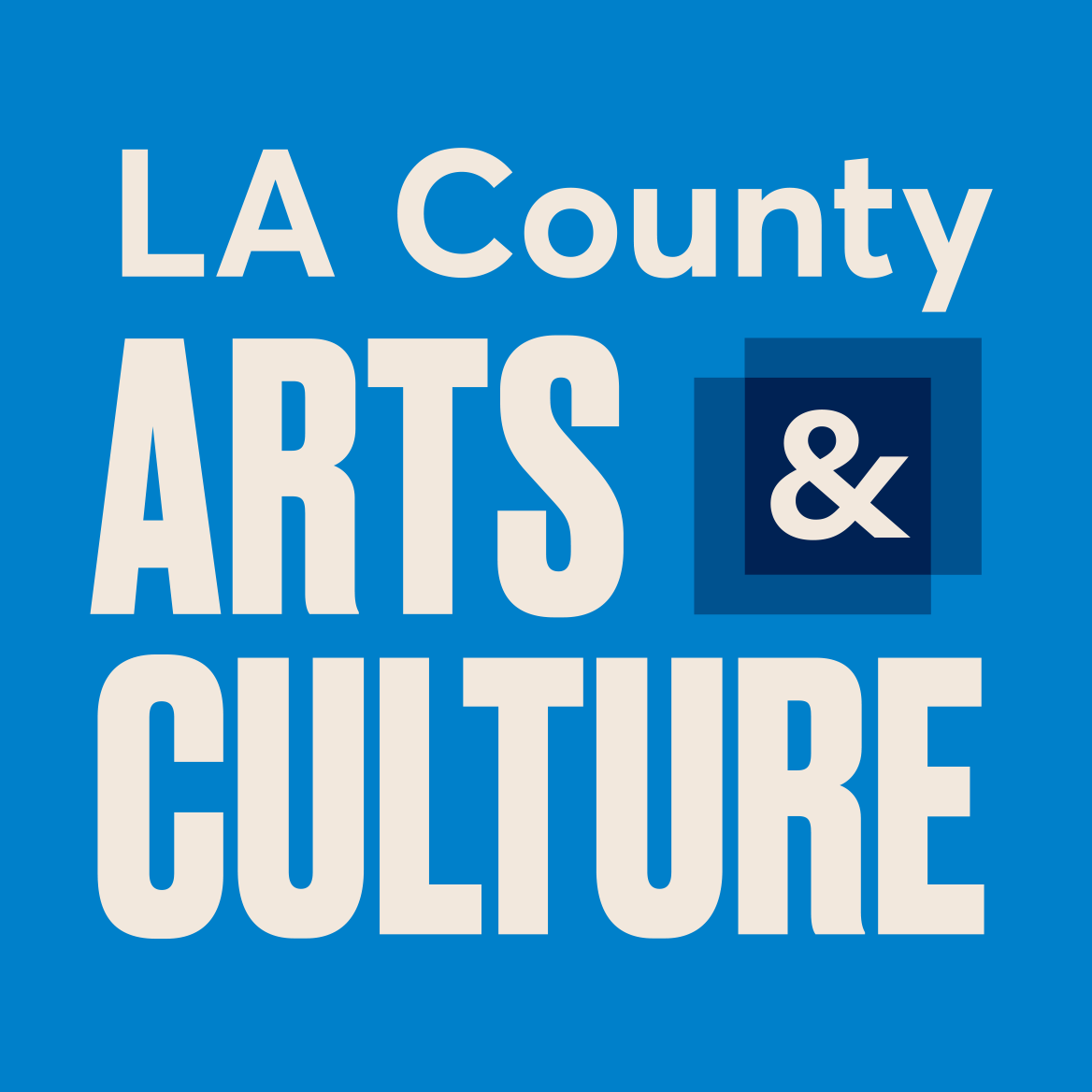"How do we make the system and the artist’s life less fragile? I like working on strategies for creating jobs and for bringing cultural resources to artists. That’s what motivates me, that’s what I love." —Rosalyn "Ros" Escobar
 Rosalyn Escobar grew up in Koreatown with the arts all around her. Her mom sang, her dad played guitar and piano, and her sister was very dramatic. Her mom found the girls a performing arts magnet, the Bancroft Middle School. "I met kids from all over the city there. It’s where my love of diversity started. My best friends were from South LA, Russia, India. It was such rich experience," Ros said.
Rosalyn Escobar grew up in Koreatown with the arts all around her. Her mom sang, her dad played guitar and piano, and her sister was very dramatic. Her mom found the girls a performing arts magnet, the Bancroft Middle School. "I met kids from all over the city there. It’s where my love of diversity started. My best friends were from South LA, Russia, India. It was such rich experience," Ros said.
It was also where she became passionate about creative expression. Ros was more introverted than her sister, but she discovered dance in middle school, then studied visual arts in high school. Los Angeles Community College led to UC Santa Cruz, which led to a year-long study abroad program in Brazil for community development and urban planning. Ros thought a lot about immigration law, because when her mom wasn’t singing, she worked as a notary and helped people with their immigration papers.
Then a friend told her about a program coordinator job at Venice Arts, and Ros started an arts administration journey that continues today. She began grad school at UC Irvine in urban and regional planning, and she knew that her calling was to work at the intersection of urban planning and the arts, and become an advocate who could bring resources to communities. "What I learned in my planning program broadened my thinking about collaboration amongst different organizations, and how that could create capacity and strengthen a community. It was the right exposure to real work, and the theories and philosophies behind the work. It taught me how to better tell the story of a community and what that means in terms of the community then advocating for themselves."
Ros interned at SAJE (Strategic Actions for a Just Economy), studying the effects of urban development policy in South LA, and advised her friend Eric Ibarra on opening the nonprofit Las Fotos Project. She began to understand how to run a successful arts organization—the legal paperwork, the infrastructure, and most important to her, how to engage, not gentrify, neighborhoods. "I loved working with artists at nonprofits—the way they think and problem solve, and how emotionally connected they are to their students. When there’s an artist involved, there’s just a special magic coming out of their brains,” she said.
She went on to take program manager roles at LA Commons and the Ford Theatres, where she ran the Free Concerts grant program and the Musicians Roster, and supported the Artist Partnership program, and the and rentals and administration at the theatres. The Ford was special to her—she had seen the Beat Junkies there years prior, and she understood how important the venue was to local performers. "I had already done so much work in communities, so it was a nice way to continue that, and ensure ensure representation and diversity," she said.
When a vacancy opened up at the LA County Arts Commission (now the Department of Arts and Culture), she applied and got a job as the manager of the Organizational Grant Program. Instead of working from within a nonprofit, she’s on the other side now—overseeing a $9M program that supports over 400 organizations with funding for programs, services, and advocacy. She says that at first, her instinct was to focus solely on small organizations—that the huge, multi-million-dollar budgeted institutions didn’t need help. "But I began to understand, over time, that the growth of the field depends on all of them. The larger organizations bring jobs and creative opportunities to LA, and this supports the smaller orgs. Together, they’re the backbone of the creative economy in LA, but you need to have diversity within the field."
Though she has always been surrounded by artists in her family, her schools, and her work, Ros is now at the part of her journey where she works to sustain artists. "How do we make the system and the artist’s life less fragile? I like working on strategies for creating jobs and for bringing cultural resources to artists. That’s what motivates me, that’s what I love.”

